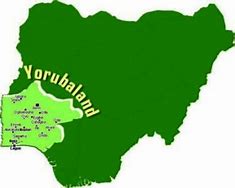| The coronavirus pandemic has upended life as we know it with its devastating effects on health and domestic economies, but also multilateral trade, cooperation and aid. It has reframed domestic politics, stalled economies and brought renewed scrutiny to deeply embedded societal structures. And among the victims of COVID-19 might be the multilateral system that has helped to ensure peace and coordinate global responses to challenges that cut across borders. |
| The coronavirus pandemic has upended life as we know it with its devastating effects not only on health, but on domestic economies and multilateral trade, cooperation and aid. It has reframed domestic politics by crowding out other issues, with political performances measured against how successfully leaders have navigated their countries through the pandemic. Failure to do so has already toppled seemingly entrenched rulers, like longtime Surinamese President Desi Bouterse. Afraid of facing similar consequences, some governments have used the pandemic as a pretext for restricting free speech and stripping away the rule of law. The pandemic has stalled economies and wiped out millions of jobs, with the World Bank having predicted a 5.2 percent contraction in global GDP in 2020. Governments everywhere are struggling to map out possible paths to recovery. There have already been calls for debt relief across the Global South. Saudi Arabia has been forced to implement harsh new austerity measures. And Spain, one of Europe’s hardest-hit countries, is experimenting with a minimum guaranteed income for its citizens. Now the second wave of the pandemic is threatening further economic damage, requiring sustained government interventions to head off catastrophe. Contact photo Message Body To protect your privacy, remote images are blocked in this message. Display images View this email in your browser. How the Coronavirus Pandemic Upended Life as We Know It January 11, 2021 The coronavirus pandemic has upended life as we know it with its devastating effects on health and domestic economies, but also multilateral trade, cooperation and aid. It has reframed domestic politics, stalled economies and brought renewed scrutiny to deeply embedded societal structures. And among the victims of COVID-19 might be the multilateral system that has helped to ensure peace and coordinate global responses to challenges that cut across borders. The coronavirus pandemic has upended life as we know it with its devastating effects not only on health, but on domestic economies and multilateral trade, cooperation and aid. It has reframed domestic politics by crowding out other issues, with political performances measured against how successfully leaders have navigated their countries through the pandemic. Failure to do so has already toppled seemingly entrenched rulers, like longtime Surinamese President Desi Bouterse. Afraid of facing similar consequences, some governments have used the pandemic as a pretext for restricting free speech and stripping away the rule of law. The pandemic has stalled economies and wiped out millions of jobs, with the World Bank having predicted a 5.2 percent contraction in global GDP in 2020. Governments everywhere are struggling to map out possible paths to recovery. There have already been calls for debt relief across the Global South. Saudi Arabia has been forced to implement harsh new austerity measures. And Spain, one of Europe’s hardest-hit countries, is experimenting with a minimum guaranteed income for its citizens. Now the second wave of the pandemic is threatening further economic damage, requiring sustained government interventions to head off catastrophe. Medical staff and nurses gather during a protest at La Paz hospital in Madrid, Spain, Oct. 5, 2020 (AP photo by Manu Fernandez). In light of the restrictions imposed to stop the coronavirus’s spread, deeply embedded societal structures are suddenly receiving renewed scrutiny. Mounting inequality and crackdowns on civil rights in some countries have contributed to a surge in social protest movements and civil resistance. |



